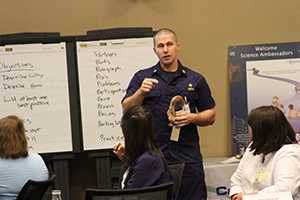Who are epidemiologists?

When disease outbreaks or other threats emerge, epidemiologists are on the scene to investigate. Often called “Disease Detectives”, epidemiologists search for the cause of disease, identify people who are at risk, determine how to control or stop the spread or prevent it from happening again. Physicians, veterinarians, scientists, and other health professionals often train to be “Disease Detectives”.
What do epidemiologists do?
Like investigators at the scene of a crime, disease detectives begin by looking for clues. They systematically gather information, asking questions such as:
- Who is sick?
- What are their symptoms?
- When did they get sick?
- Where could they have been exposed?
Using statistical analysis, epidemiologists study answers to these questions to find out how a particular health problem was introduced.
Disease detectives identify new diseases that have never been seen before, such as Legionnaire's disease and SARS and the organisms that cause them.
Disease detectives use what they learn during the investigation and make recommendations to control the spread or prevent a future occurrence.
Learn more about CDC's disease detectives in the Epidemic Intelligence Service (EIS) .
- Page last reviewed: June 17, 2016
- Page last updated: June 17, 2016
- Content source:


 ShareCompartir
ShareCompartir